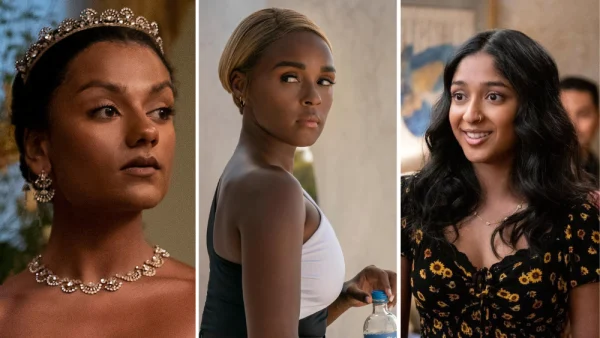Since its founding in 1997, Netflix has become a colossus of the entertainment industry. From its availability in 190 of the world’s 197 countries to its massive viewer base of an astounding 193 million people, Netflix is not a mere avenue of entertainment, but what seems to be a necessity to daily life. Not only has it changed how we view content, but it’s also changed the nature of entertainment itself. Being independent from cable TV’s rigorous standards led to Netflix boasting some of the world’s most groundbreaking movies and TV series. For instance, House of Cards, the first “Netflix Original,” pushed television into the highest echelons of artistry, intellect, and social commentary—all while being easily accessible and most importantly, entertaining.
After House of Cards, Netflix went on to release Orange is the New Black. Another series hellbent on not only pushing the standards of popular television but breaking any barriers held on its majority female cast, production team, and writers. However, after its inevitable end in 2019, Netflix seems to have regressed into the pervasive male narrative it challenged with its 2013 rise, which was teeming with counterculture and underlying feminist narratives.
For instance, one of Netflix’s most popular shows, You, chronicles main character and serial killer, Joe’s descent into madness as he stalks, imprisons, and murders several innocent women to feed his sociopathic desires. Furthermore, mirroring women’s real-world struggles, Love, his similarly ingenious, independent, yet murderous companion, cleans up Joe’s messes (literally) time after time all while coveting her role as a wife and mother. As if sensing that You’s aura of male superiority, despite the opposite being glaringly obvious, was being trumped by Love’s superior character, Netflix diminished Love into the ubiquitous female archetype of being irrational, overly emotional, and dependent on a man, leaving Joe’s character to flourish into the more traditionally logical, domineering of the two. Unfortunately, this cemented You as a show rife with the very sexism Netflix combatted so effortlessly in its rise.

Moreover, Netflix’s devolvement into a shadow of its progressive status within the entertainment industry extends to key creative and management positions. According to Pietaryte and Suzina in their “Female Representation in Netflix Global Original Programming: A Comparative Analysis of 2019 Drama Series. Critical Studies in Television“, despite having a workforce of about 50% women, according to 2022 a Sage Journal’s report, only 29% of women were writers, 27% were executive producers, and a mere 21% were directors. These figures continue the notion seen in You of Netflix degrading women’s positions in TV and movies down to harmful stereotypes. Likewise, shows like Squid Games, Stranger Things, Sex Education, and Money Heist—all some of Netflix’s most popular shows—present women as inferior to men through their disproportionate speaking time, sexualization of female characters, and the widespread portrayal of female characters as either young objects of affection or mature homemakers.
Rarely do we see morally complex female characters capable of vulnerability, independence, and success. Instead, we are force-fed one-note model female characters written by men for the sole purpose of satisfying the need for a modern female archetype: strong, but never stronger than a man, faced with immense adversity all while being gorgeous and easy-going, and confined to predictably perfect behavior. This is an issue prevalent within Damsel, Bridgerton, and Emily in Paris. All these shows, despite a female-heavy cast, were written, directed, and created primarily by men.
Furthermore, the male domination behind the scenes is evident in the stereotypical female character archetypes rife within these female stories adjusted for the objectifying male gaze. The underlying issue within Netflix, a company with immense influence in 97% of the world, who, despite this, perpetuates misogynistic stereotypes they once fought against.
Pietaryte, K., & Suzina, A. C. (2022). Female representation in Netflix Global Original programming: A comparative analysis of 2019 drama series. Critical Studies in Television. https://doi.org/10.1177_17496020221141625


